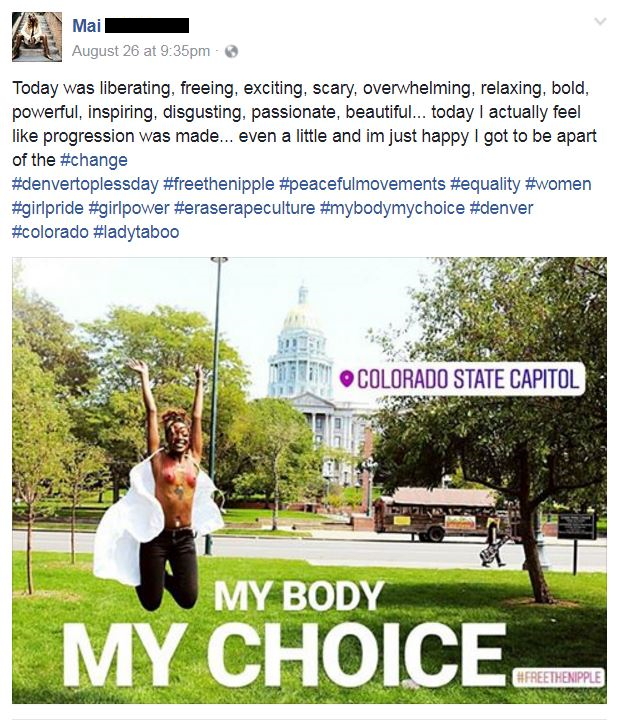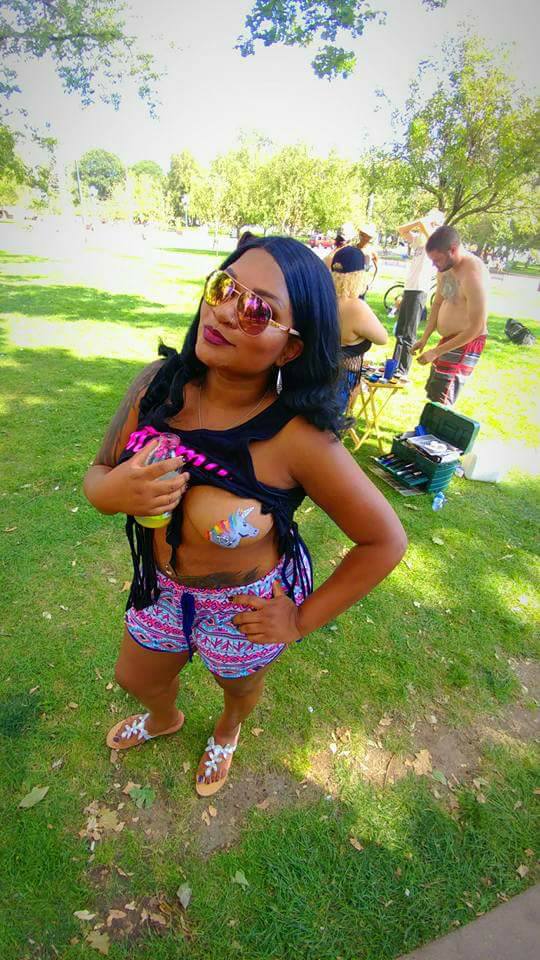Why DenverGoTopless?
DenverGoTopless celebrates how women are able to be topless in Denver city limits within the same contexts where it's socially acceptable for men. We seek to normalize topless equality, as a means of combating objectification and rape culture.
Is female toplessness legal in Denver?
Yes, as long as it follows these guidelines:
No blocking traffic
No "flash for cash" solicitations
No sexual contact
No sexual conduct (i.e., no purposeful intent to arouse)
For the relevant Colorado and Denver statutes, click here.
How does a "Topless" parade combat objectification?
That always seems to be the big question, yet it's an ironic one, seeing's how usually buried in it is the assumption that breasts are inherently sexual. They aren't, any more than ankles or eyes, or arms or legs. All body parts have functions and, other than genitals, none are *inherently* sexual. Yet here in America, people tend to forget: Context makes a difference.
If a woman goes to a male gynecologist, we expect respect for boundaries. A doctor drooling over a patient is completely unacceptable behavior. Because we already know: Nudity and sexuality are NOT the same thing.
A person can be clothed and sexual, or naked and non-sexual, and everything in between. There are multitude aspects to sexuality, most of which have little to do with skin.
Sex and sexual stimulation isn't necessarily bad. Sexuality is an integral part of being human, and society should make every effort to promote healthy sexuality and relationships. But when it comes to sex, America's bipolar: We make Sex Ed as clinical as possible and shame personal sexual expression, while we embrace commercialized objectification.
We absorb millions of idealized sexual images throughout a lifetime, most of which objectify bodies in the pursuit of larger audiences or product sales. You ever notice women's fashions tend to be tighter and show more skin? Or notice women's bodies being used to sell everything no matter how unrelated to sex?
Watching TV, reading magazines, browsing the internet --they're typically personal, singular activities, so accountability for our personal titilation and silent objectification is extremely rare. Easy to dismiss; nothing wrong with a little stimulation, right? But people are creatures of habit. When people, even without realizing it, solidify their habitual objectification for hours per day 7 days per week, it changes the way we think, and the results aren't always positive.
It sets up a pattern of thought where our instinct is to objectify without consequence.
It reinforces the notion that we're entitled to view others as sexual objects
When others protest being viewed or treated as sexual objects, our thwarted sense of entitlement prompts responses ranging from surprise to anger, and sometimes, retaliation.
It took us until 2018 to finally legalize public breastfeeding in all 50 states, yet stigma still surrounds it. Toddlers are in no way sexual, but if they're caught playing outside with no clothes on, think about how fast would it prompt a visit from social services. We can't go swimming in a public pool without a suit, or even create body-wash commercials without editing out the "naughty bits." Such stigmas reinforce an inability to see nudity without associating it with sex.
It also sets up unreasonable expectations. We may judge harshly when bodies (ours or others') don't meet idealized expectations. Think back on personal conversations about celebrities: How much less likely so we focus on their acting skills, versus "OMG, they're so HOT!" If all someone sees are perfectly posed, carefully lit, airbrushed idealized imagery, it colors what we perceive as "normal". Most of us, when we look in the mirror, don't measure up, which is why our society is rife with body-image issues, compounded by health and beauty industries preying upon and profiting on our insecurities.
DenverGoTopless parades, and similar events across the country, disrupt these patterns. The habitual response to skin is to objectify, but the non-sexual, personal interaction pushes us to humanize. Real life has a different set of rules: It isn’t socially acceptable to stare at a woman’s chest, at least overtly. Most men, at first, feel awkward enough to either avert their gaze completely, or rigidly maintain eye contact. But rather quickly, interaction reduces awkwardness, to where people focus more on the person than the body. Such experience with this new perspective stimulates a re-evaluation of what it means to be a man and how to relate to women. Men realize they aren't slaves to (conditioned) instincts, that they're capable of recognizing context and exercising self-control and how, rather than pursuing women as a potential conquest, interacting with women on an intellectual level yields greater fulfillment.
For women, it's an incredibly empowering experience. They're free to (finally!) share the same freedom as men to take off their shirts on a hot summer's day, without fear. They're side by side with men who "get it", who realize the injustice of objectifying double-standards and want improve culture for all. They're taking part in actively changing the culture they've had to endure. This is an event women are proud to be a part of, and often voice their joy in participation.
Who participates in these events?
People of all ages, races, shapes, politics, and gender identity. #ToplessEquality is for all
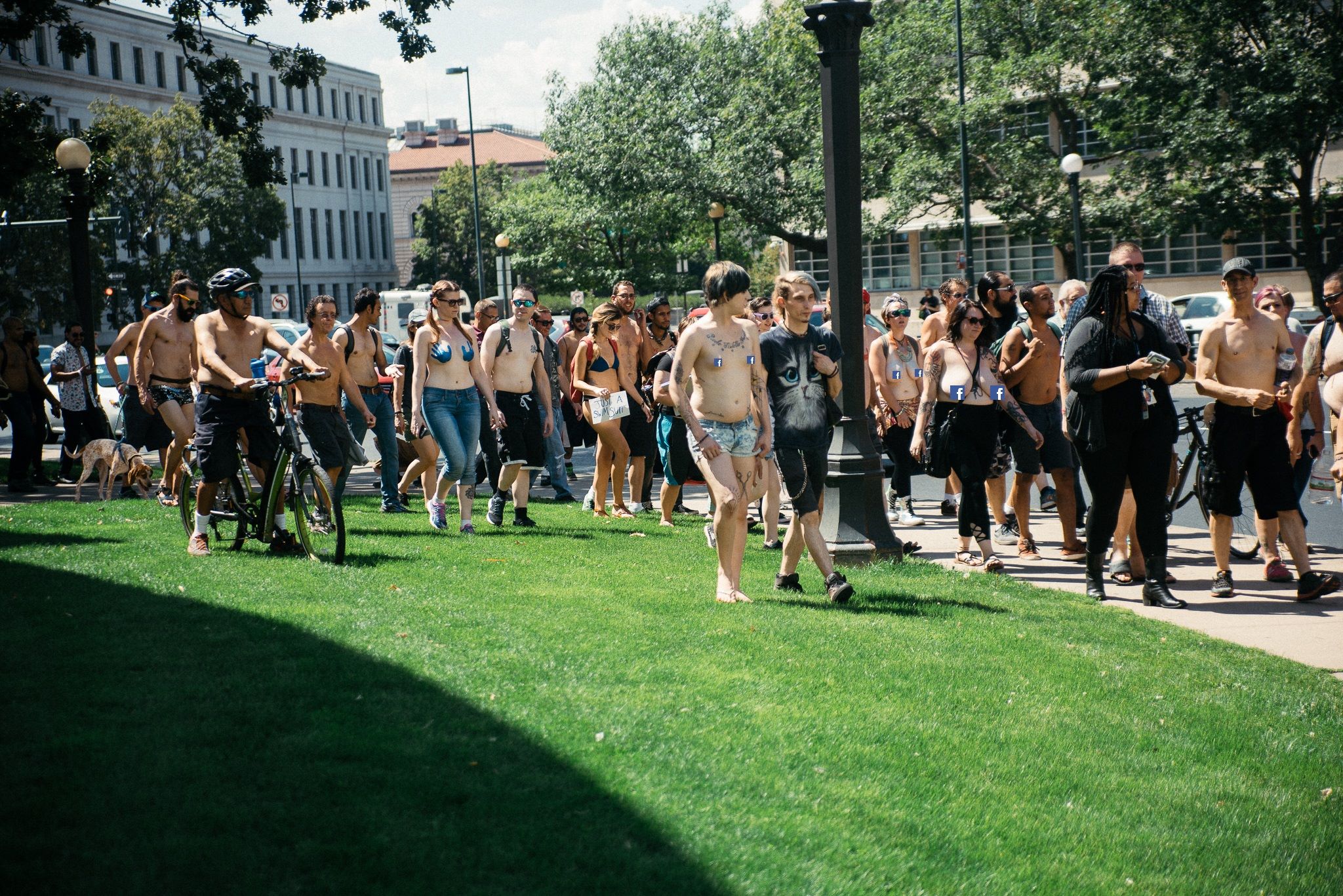
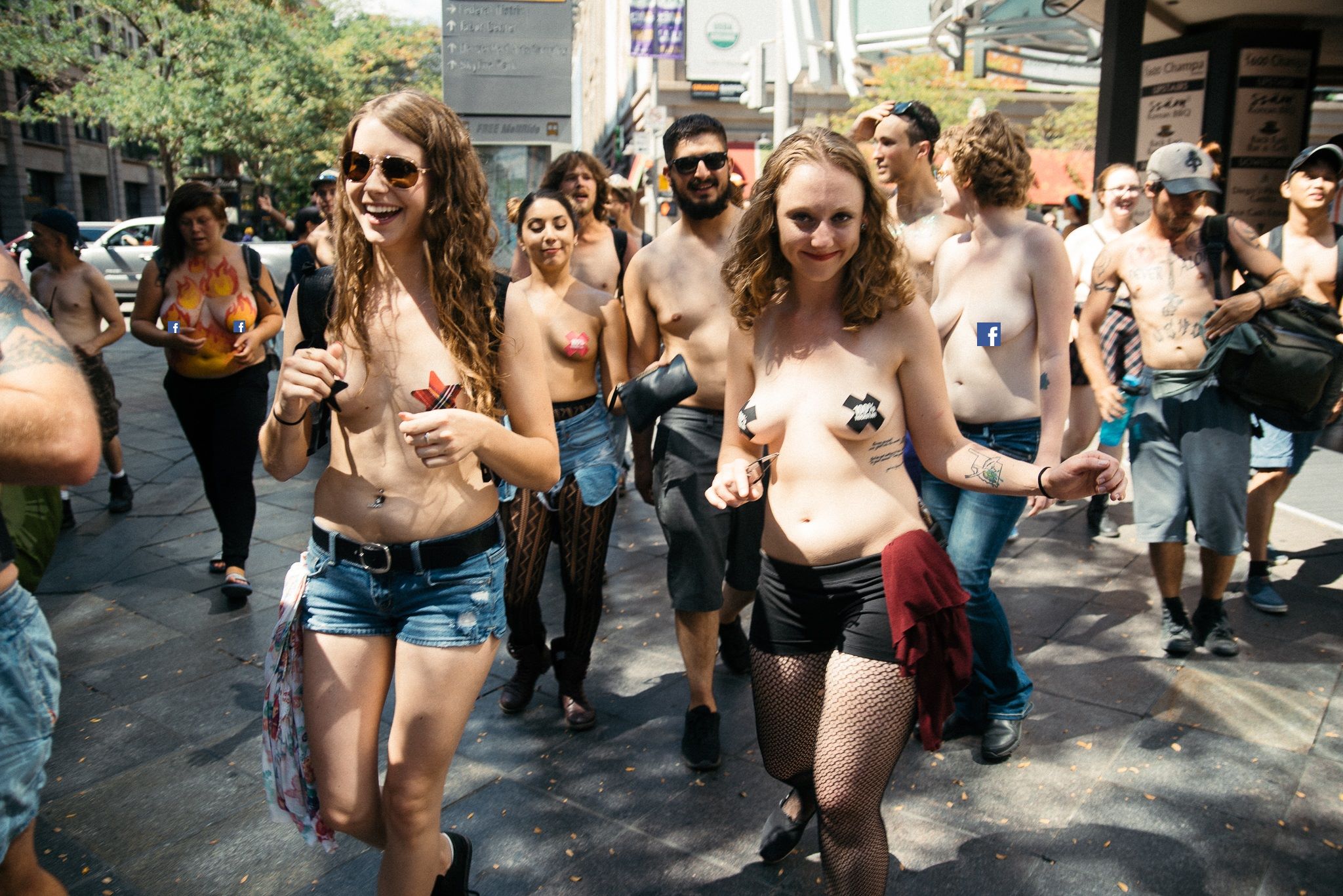
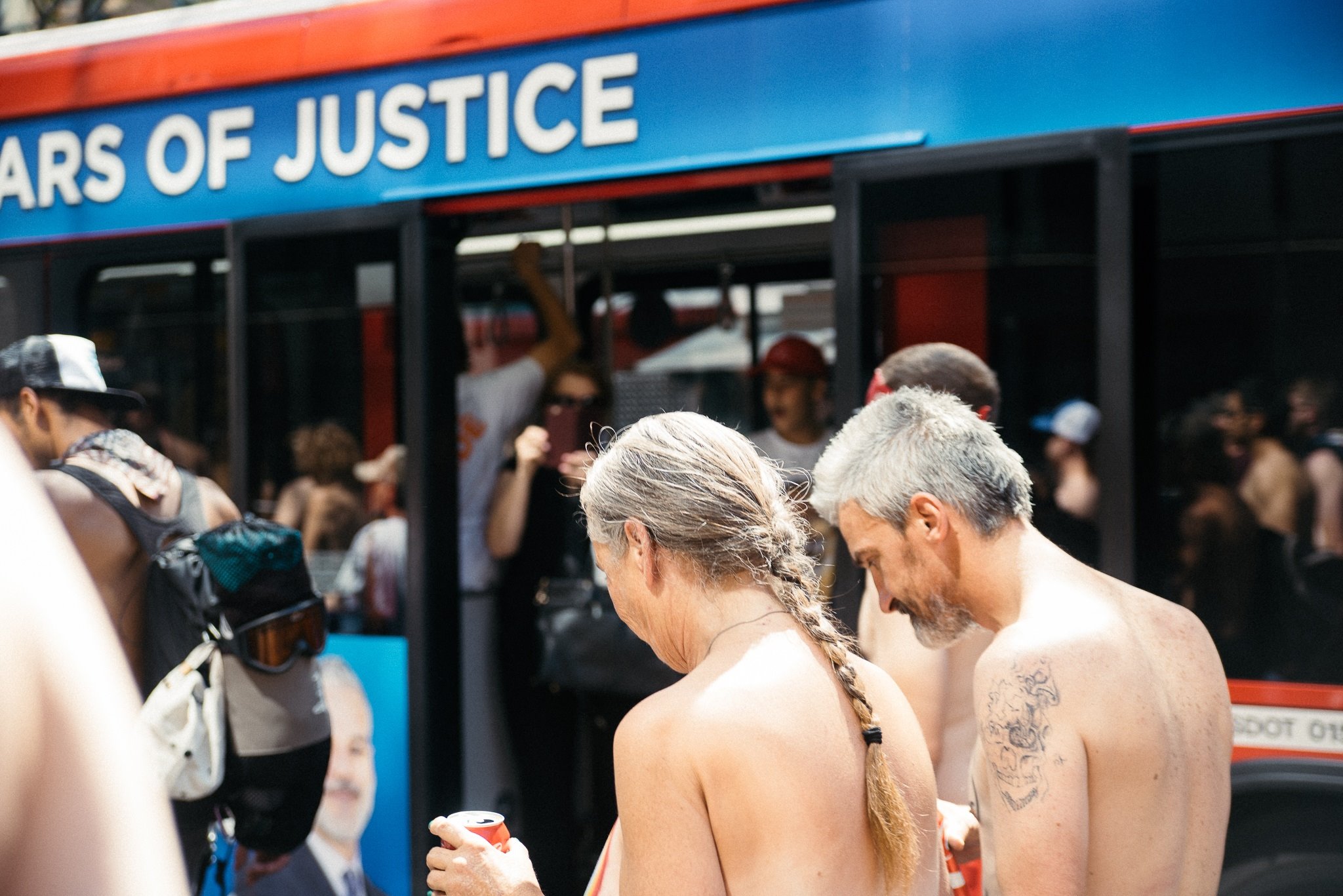
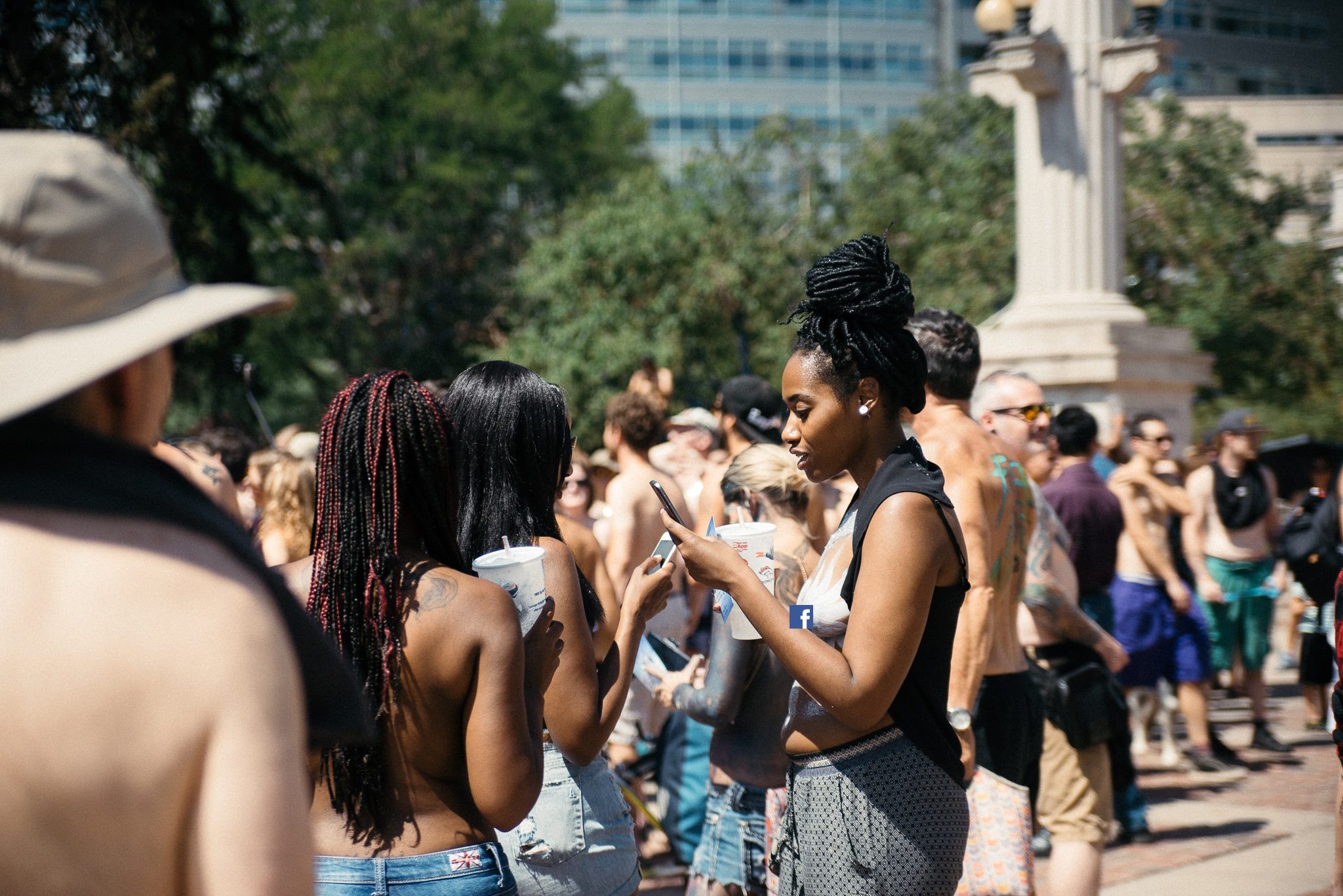
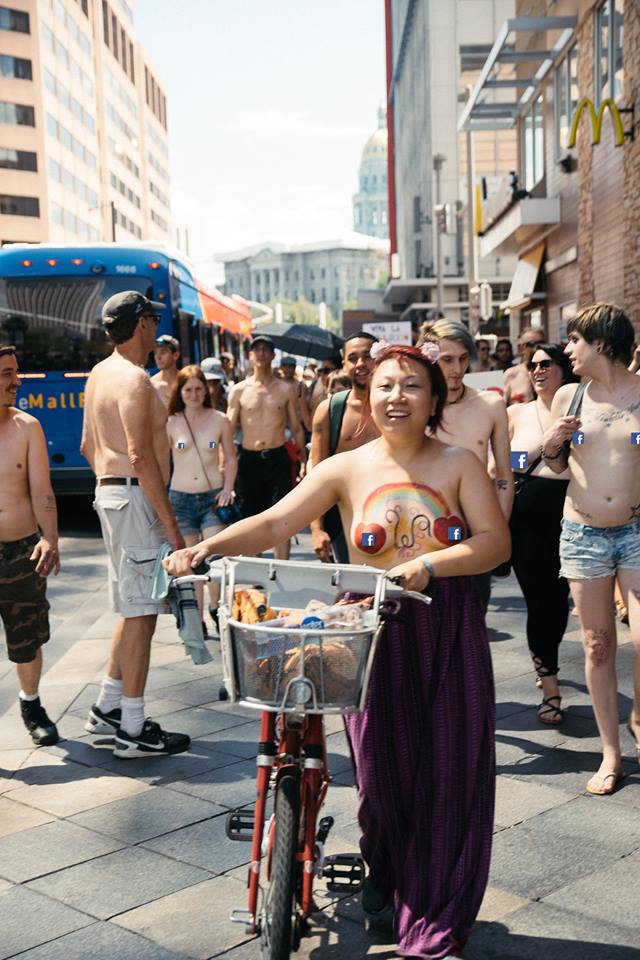
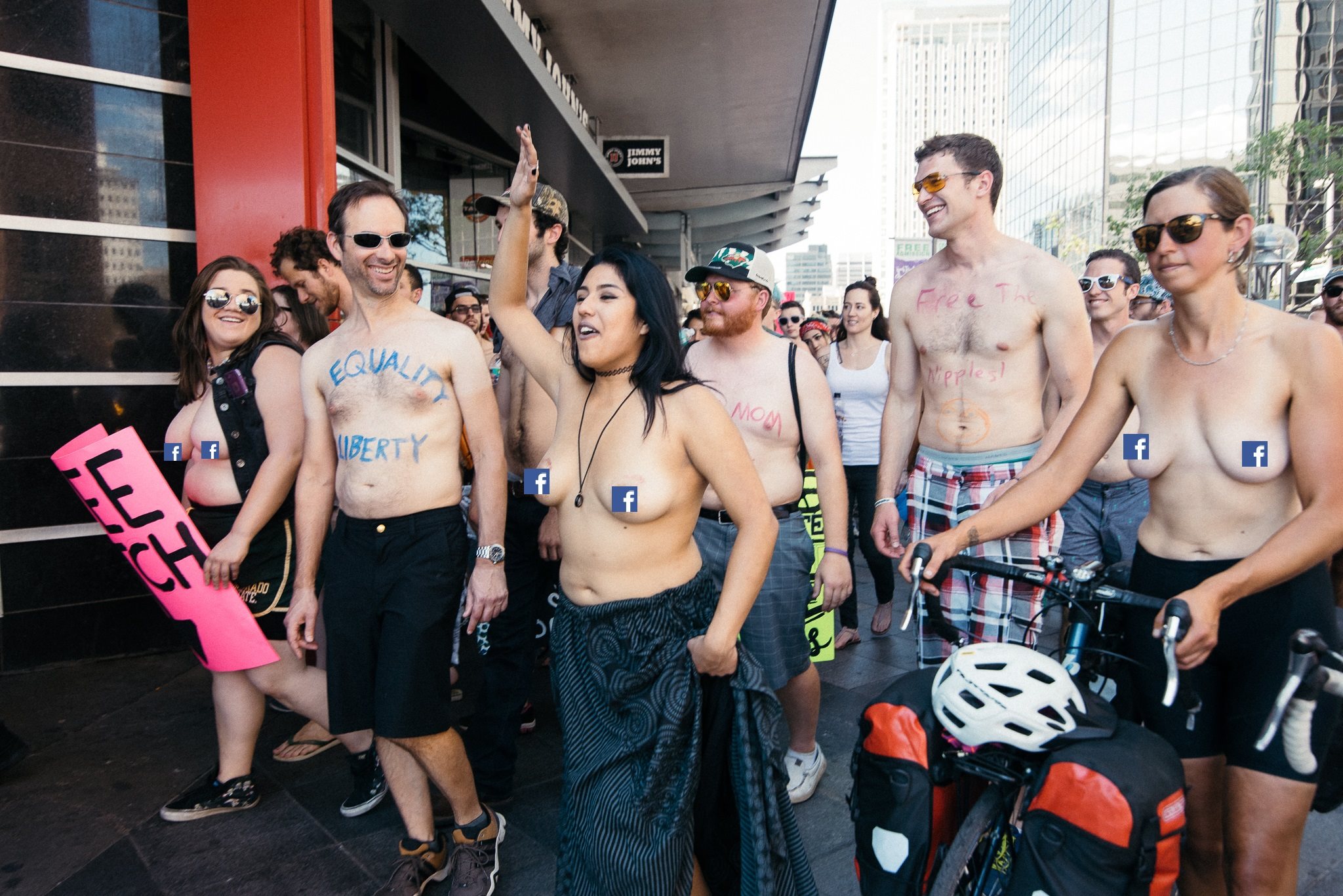

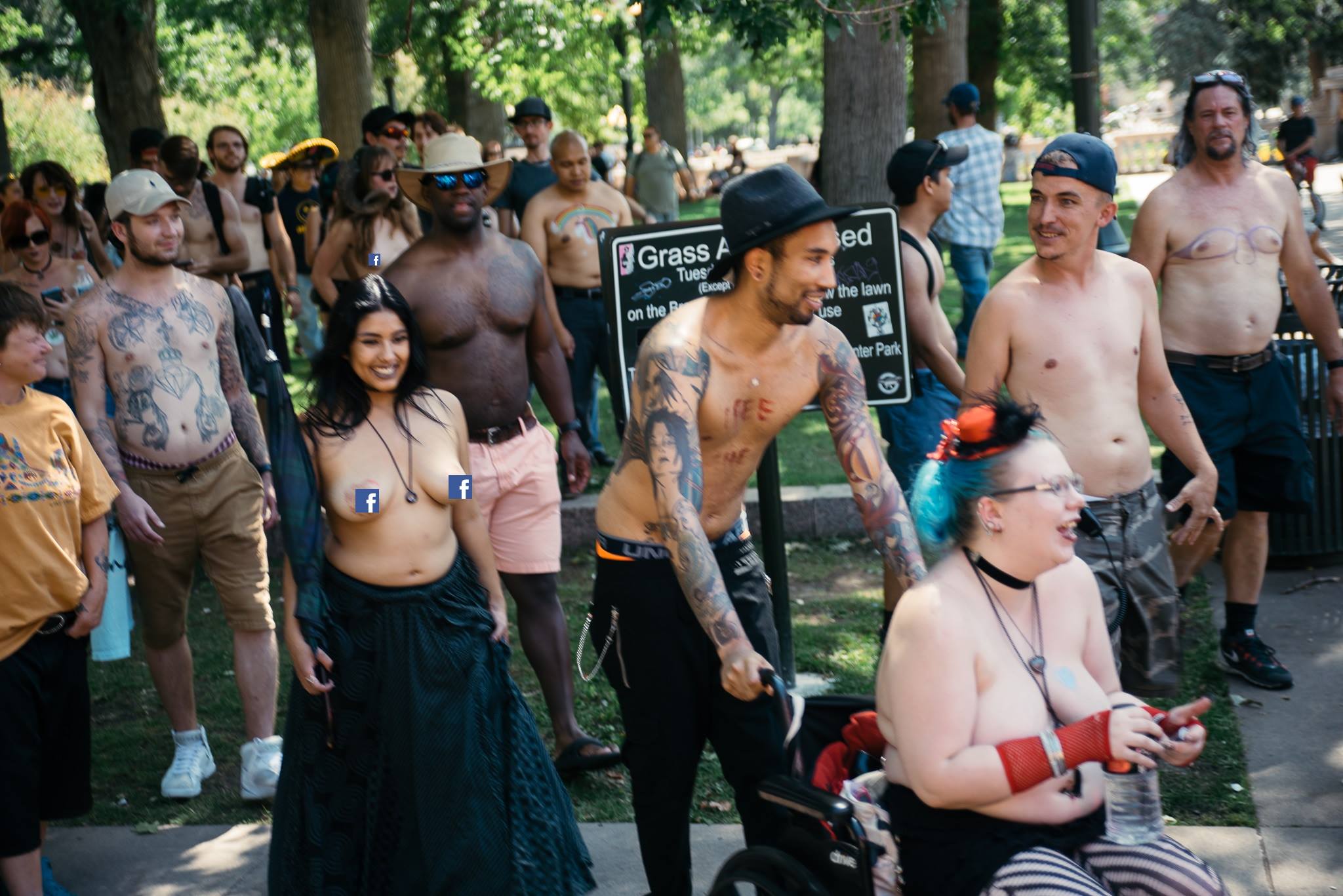
Can coed topless parades effectively change society?
Our parades make a huge splash in public consciousness, opening dialog and creating opportunity for education and changed perspectives. Yet to truly be effective, we stress the need for people to get involved in other ways too:
It's so much easier to point fingers than to self-examine, but self-examination leads to personal growth. If this is an issue for you, ask yourself: "Is it really their clothes/behavior, or is it just the way I choose to see them? Am I being fair?"
In conversations, hold yourself and others accountable for objectification. Stress more appreciation for qualities related to abilities and achievements.
Call out advertisers and businesses for ridiculously inappropriate "sex sells" campaigns
Contact television stations and magazines. Inform them instances of casual, non-sexual nudity are not only permissible, but vital as an antidote to hypersexualization in media.
Support #FreeTheNipple, #GoTopless, and #MeToo campaigns through donations and activity.
What kind of world are you working towards?
We're working towards a culture where:
A woman walking alone doesn't have to suffer catcalls or fear for her safety. Where respect for boundaries is normal, no matter how covered/uncovered or drunk/sober the person. Where a man doesn't feel entitled to tell a random woman to "smile more, you'll be prettier." When on a hot day surrounded by shirtless men, women don't have to suffer heatstroke. Where a body wash commercial doesn't have to censor. A world where context makes a difference. And most importantly: A culture where the person matters more than the body.
The whole point is to promote culture that overcomes the widespread inequalities seen today.
Evil flourishes when good people do nothing. We're doing something.





